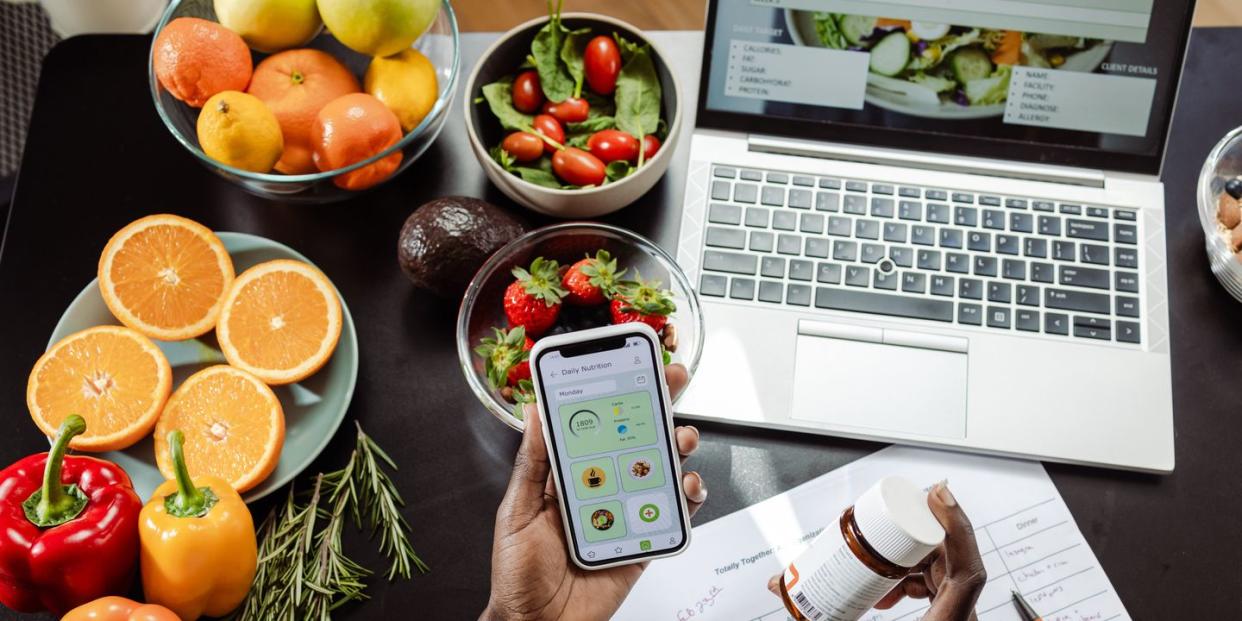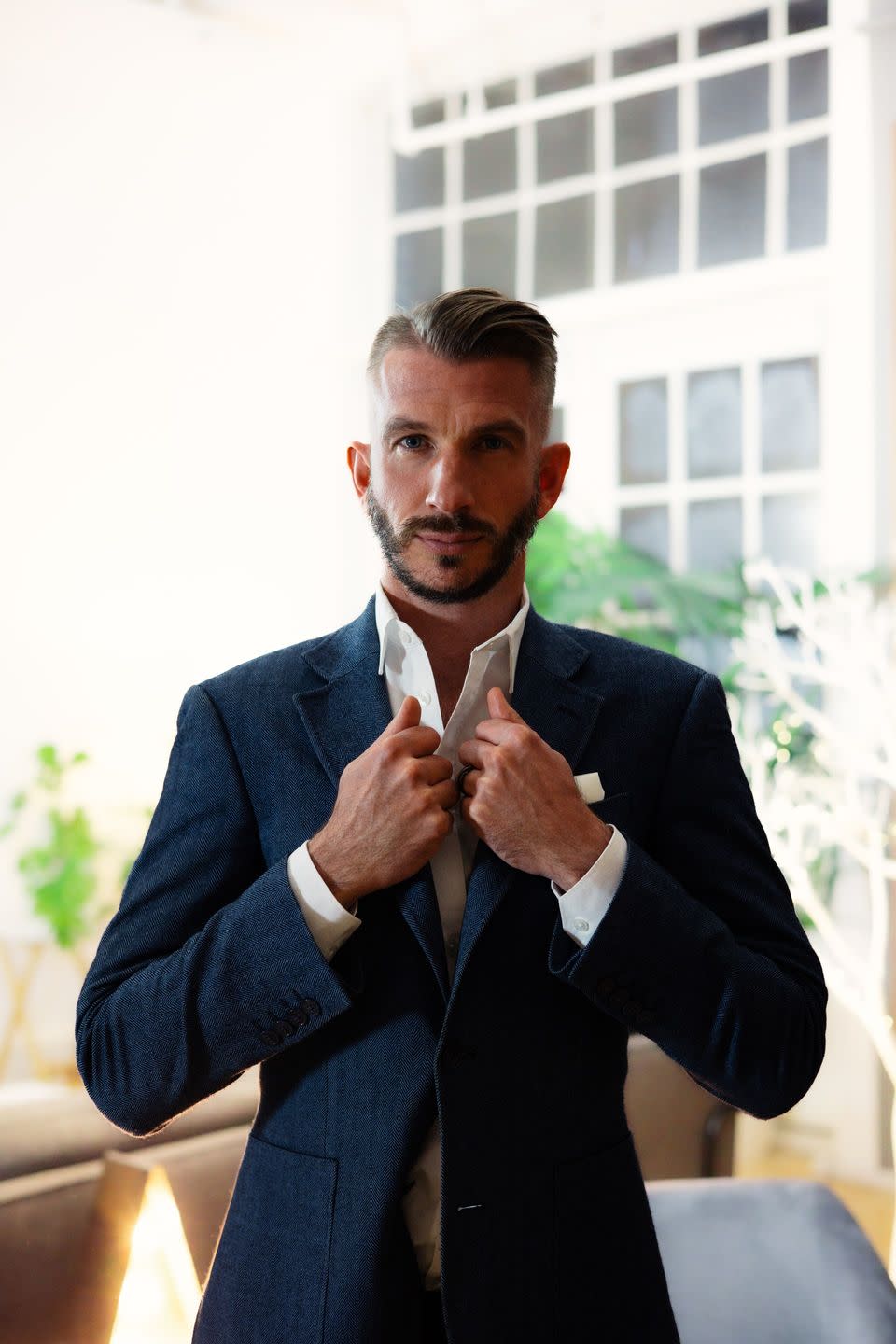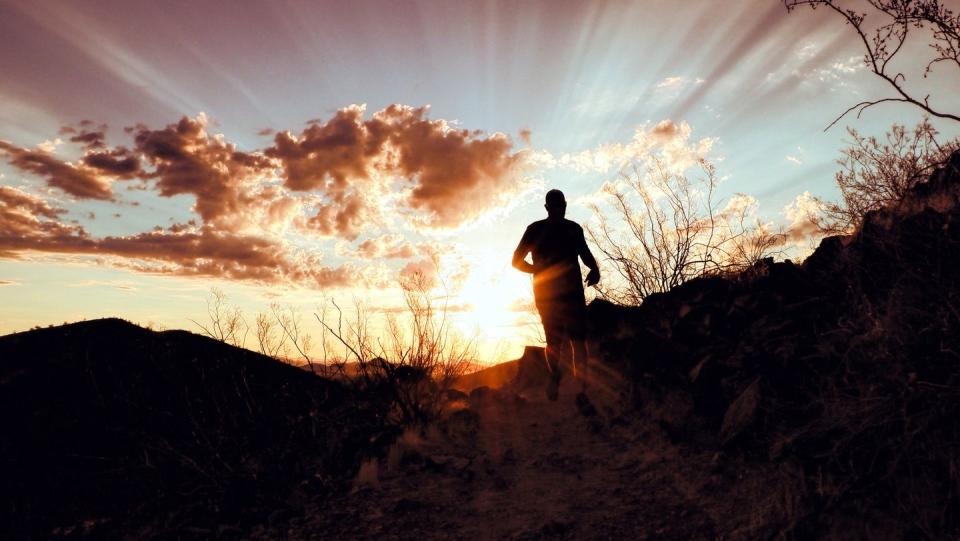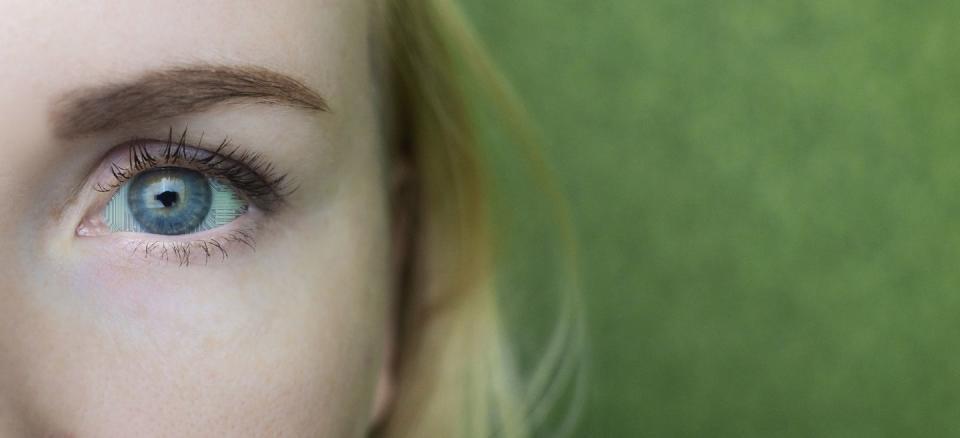Biohacking is growing in popularity – but can it really lengthen our life span?

Ever heard of biohacking? You may already be completely obsessed with YouTuber Bryan Johnson, the multi-millionaire who is attempting to 'biohack' himself one day at a time and reverse his age, in the hope he can live forever... Or you might think it's all complete rubbish, and best kept as the theme of a sci-fi movie.
Either way, biohacking is continuing to grow in popularity and spark conversation. But what actually is it?
In a nutshell, biohacking is a fancy way of saying you're observing and then responding to your body, making changes accordingly, often with an end goal in mind. On the simpler end of the scale, this could involve tweaking your diet in the hopes of boosting your brain power, or creating a morning routine that features a walk in natural sunlight and a cold shower (to supercharge your energy levels).
So far, so healthy (and harmless). Right? Criticisms, however, have also started pouring in when it comes to biohacking – as some people have taken it all several steps further (see: the aforementioned Bryan Johnson, the world's most famous biohacker, who undergoes multiple medical tests a day, takes copious supplements and has even dabbled in plasma exchanges – all of which you really shouldn't try at home and without intense supervision from an expert).
Here, we dig into everything you need to know about the phenomenon of biohacking, with the help of Dr Paras Patel (an NHS researcher and chief scientific officer at The Zensory, who also has a PhD in Psycho-Physiology, an MSc in Neuroinformatics and a BSc Biomedical Science), Dr Hana Patel, an NHS GP, and "the UK's leading biohacker" himself, Tim Gray, who is also the founder of Health Optimisation Summit.
A word of warning: it's never a good idea to drastically change your health regime without consulting a professional first, or introduce supplements without chatting to a GP or dietician.

What is biohacking?
"The expression 'biohacking' describes the practice of altering your environments, nutrition, and way of life to improve physical and mental performance. Biohacking can be a useful technique to increase general health, wellbeing, and lifespan," explains Dr Paras Patel.
While that all sounds great, depending on how seriously it's taken, it can be a pretty extreme lifestyle shift that involves completely altering your diet – so approach with caution, consult your doctor, and don't just jump to take part in a plasma exchange because you saw Bryan Johnson do it on Instagram.

Biohacker extraordinaire, Tim Gray (who is currently 44 but claims his latest biological age test came back as 21), explains the process involves a little differently, saying it's about "harnessing cutting-edge technology – like wearable devices that track and monitor your heart rate or sleep, or using apps that record fitness and nutrition – and natural wisdom, creating an environment within and around us to sync with our primal biology."
The biohacker explains that this can help us understand the 'fundamentals' of optimal health in the context of our ancestral history. "Meaning it looks at 'what do we need to do now', in modern day, to provide our bodies with the optimal environment to thrive despite this evolutionary mismatch we’re in," he says, citing the example of people who live in a city and struggle with a lack of nature.
Elsewhere, biohacking is being explored with a more specific healthcare goal in mind. Dr Hana Patel explains "the science of biohacking" as: "where biologists go into a patient’s genetic code and reprogramme their immune system to recognise and fight cancer cells. This is something that the NHS recommends and is carrying out ongoing research on."

What is the daily routine of a biohacker?
There is no one size fits all, and even top biohackers will take different approaches. America's Bryan Johnson is arguably one of the most extreme examples out there, with a team of 30 doctors helping him.
His routine sees him wake up at 4.30am to exercise, eat a diet of approximately 1,977 calories a day up until 11am, consume 111 pills, avoid all alcohol, and head off to bed at 8.30pm. Johnson also experiments with different boundary-pushing techniques, most famously having undergone a plasma exchange with his son and father...
This side of the pond, as soon as Tim Gray wakes up (after seven and a half to eight hours sleep), he tells Cosmopolitan that he drinks a glass of mineralised water to support his detoxification and get his mind ready for the day ahead. His morning routine, he says, which begins at 8am and runs until 9.30am, looks like this:
Scrape my tongue
Take binder supplements [to reduce the amount of phosphate being absorbed from food into your blood stream] and hydrate
Prepare my morning coffee
Go outside to do some grounding while drinking my coffee and read a good book for 30 minutes
Take 30 minutes to read articles and newsletters from the previous days on Pocket App (so I don’t get distracted)
Read my initial emails so I get them out of the way and won’t need to check them until the afternoon
Review my stocks and decide what to buy or sell during that day
Prepare my Instagram post so it’s out of the way
Gray then moves on to 30 mins of working out and breathwork, before having his breakfast, a higher-carb protein shake (as he's bulking at the mo). Some days he fasts, depending on his goals, but typically goes to bed around 10pm, finishing eating 3 to 4 hours before, so digestion doesn't interrupt sleep.
The biohacker also ensures he moves regularly and walks throughout the day, meditates, and winds down and stays off screens and work tasks in the evening.
"Any supplement I take, the food I eat, my movement, caffeine timing and light exposure is all timed to my circadian rhythm," he adds. "There’s often a lot of focus on 'what' [is in a biohacker's routine] but less on 'when'. Our biology changes throughout the day and aligning one's routine to our innate circadian rhythm can have a huge impact on energy and how we feel, perform and recover."

What biohacks can you try?
Not all of us have the the time, resources or money to allocate a morning for reading or deep thought, nor do the majority of us have a scientific team behind us, or the ability to be able to afford endless supplements.
But, Gray says, "I am a strong believer in the fact that the best biohacks are free. Health is a right – it should be accessible to all those who truly seek it.
"Once people have the 'fundamentals' in place they can begin to look into the exciting technologies if they have the resources. But, honestly, you can get 80% there with just a small time and financial investment."
According to Tim, these biohacking fundamentals include:
Optimising our light exposure: getting natural light in the morning and limiting artificial light in the evening
Sleeping 7 to 9 hours: a balance between deep, light and REM sleep
Hydrating properly and eating the right foods: Gray avoids tap water and eats a minimally processed diet of whole foods, organic fruit like berries and veg, and grass-fed meats and organs to "mimic" the diet of our ancestors and be "as close to nature as possible"
Incorporating movement into your daily life: aside from exercise this also includes "not sitting too much"
Having healthy relationships with positive, like-minded people: studies show this can influence us psychologically and biologically
Optimising oral health: "Health starts in the mouth," says Gray, referencing studies that show mercury build up has been linked to poor brain health and that root canals can be associated with depression (so make sure you're brushing, flossing and getting regular check-ups!)
Low stress levels: work-life balance, enjoying nature, meditating
Grounding: bare feet on earth's surface is proven to lower inflammation and improve blood flow

What is the best biohacking diet?
Vegan vs meat
Gray has previously argued against veganism, claiming nutritional deficiencies, fatigue, mood swings, and hunger will eventually creep in. But surely, if it works for Johnson (to note, he is "vegan by choice, not necessity") who is very committed to prolonging life (and has seen some of his health markers improve), it must work for some? And with biohacking feeling like a thing of the future, doesn't this tie in with eating less meat (or 'lab grown' meat, instead)?
"I believe our optimal diet depends on our own unique biology and genetics," says Gray. "But as far as animal products, I believe that regeneratively raised organic animal produce is an important part of a nutritionally complete diet."
Obviously there are also plenty of arguments in favour of going vegan for your health and the planet, too. One mass study previously claimed avoiding meat and dairy products is the single biggest way to reduce your environmental impact on the planet.

But all debates aside, is one diet better than the other? Dr Paras Patel says the most important thing is "having a healthy nutritious balanced" diet. "What you eat has a direct impact on you and your mental and physical health," he says. "Focus on foods that support bone health, cardiovascular health, and cognitive function.
"Incorporate a mixture of fruits, vegetables, whole grains, lean proteins [this can include vegan options], and healthy fats in your meals."
Is biohacking the answer to eternal life?
When Johnson was asked on The Diary of a CEO if he thinks it's possible for us in the short future to live forever, his ultimate answer was: "Yes." When we asked Gray the same thing, he said, "What's the point in extending our lifespan without [bolstering] our healthspan?" which is certainly food for thought. Would it really be fun to live forever if you were in poor health?
"Personally, I am more focused on functional health right into old age. I don’t want my body to let me down or stop me doing the things I want to do in old age," Gray adds, explaining his motivations for being such a dedicated biohacker. "This requires a very proactive approach to functional movement and strength as well as treating the body as if it was 20 years younger.
"For example, what might be an 'okay' biomarker for a 50-year-old, but concerning for a 30-year-old is something I’d look to improve on. I’d like to have the functionality and health of someone 20 years younger where possible."
He adds, however, that "there’s no magic pill" and that no supplement or technology alone will extend our health, or lifespan – it's really the small positive changes, accumulated over the long term, that make the biggest difference.
"Once we get the healthspan right, perhaps, we can extend our lifespan too."

And what does Dr Paras Patel think? "Biohacking may help us live healthier happy lives. Research suggests that mammals with lower resting heart rates have longer life expectancy, and using biohacking techniques to improve quality of life and reduce stress can increase life expectancy – but this alone could not make us immortal. Further advances in science and technology would be required."
A word of caution
Before trying anything new, including altering your diet, taking supplements, trying fasting or changing your lifestyle routine in an extreme way, both Dr Paras Patel and Dr Hana Patel urge you to consult your own GP to ensure that what you are doing (or taking) is safe for you – especially for those with health conditions. Everyone is different.
Gray also agrees with a personalised approach to health, that doesn't involve just taking "random" supplements. "Don’t just copy or guess, test [e.g take a blood test with a reputable company to identify key areas to target] and always work with a professional," he says.
"Be patient, change doesn’t happen overnight," he adds, suggesting it's best to start with the more accessible fundamentals, then the tests, then incorporate supplements, diets, and tech to optimise and heal the body. Gray also points out: "It's not always about what to add, but also what to avoid or change."
So, what do you reckon? Worth a try?
If you're worried about your relationship with food or eating you can contact charity Beat's helpline 365 days a year from 1pm – 9pm during the week, and 5pm–9pm on weekends and bank holidays, numbers for your location found here.
If you are struggling with health anxiety or major concerns regarding appearance, you can also contact Mind on 0300 123 3393, 9am to 6pm, Monday to Friday (except for bank holidays).
This article is not intended to be a substitute for professional medical advice or diagnosis. Always seek the advice of your physician or other qualified health provider with any questions you may have regarding a medical condition.
You Might Also Like

